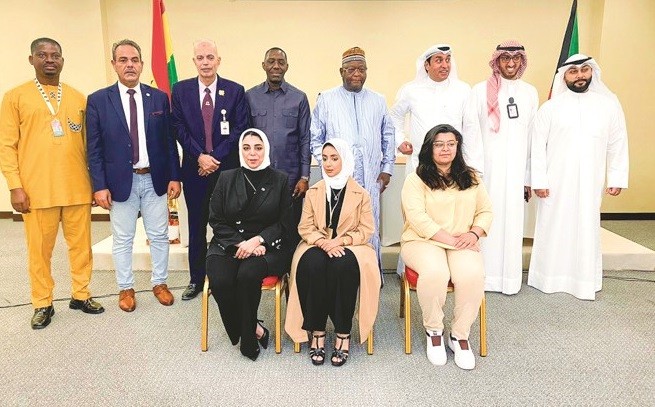21/07/2024
21/07/2024

KUWAIT CITY, July 21: Ghana’s Ambassador to Kuwait, Mohammed Habib Idris, announced on Saturday that over 3,000 Ghanaians are currently employed in Kuwait across various sectors, including construction, hospitality, healthcare, education, and energy, as well as in roles such as drivers and a few domestic workers.
The announcement came during an open meeting hosted by the Ghanaian embassy, where Idris, along with the Kenyan and Central African ambassadors, Mohammed Al-Arada from the General Federation of Trade Unions of Kuwait, Dr. Adnan Al-Balushi from the Public Authority for Manpower, and numerous Ghanaian citizens, addressed the challenges faced by Ghanaian workers in Kuwait.
Idris revealed that Ghana is close to finalizing a bilateral labor agreement with Kuwait aimed at streamlining the recruitment process for Ghanaian workers in both the private and domestic sectors. He emphasized that the agreement would ensure fair and ethical employment practices for expatriates.
“I appreciate the Kuwaiti government’s commitment to engaging with relevant authorities to address labor issues and provide information on workers' rights,” Idris stated. “Kuwait has long been a hub for expatriate workers who contribute significantly to its economy. Ghanaians have played a vital role in various sectors, from healthcare to technology.”
The upcoming bilateral agreements are expected to enhance legal protections for Ghanaian workers, manage the flow of expatriates, and boost the Ghanaian economy through increased remittances and investments. Idris also highlighted the importance of ongoing cooperation between Ghanaian and Kuwaiti authorities to address labor concerns effectively.
He commended the Kuwaiti government’s efforts, including the recent launch of the National Project for the Protection of Workers’ Rights by the Public Authority for Manpower and the Kuwait Society for Human Rights. The project aims to offer better social protection to migrant workers, a move Idris praised.
Dr. Adnan Al-Balushi, representing the Public Authority for Manpower, outlined the role of the department in regulating domestic worker recruitment and ensuring a safe work environment. He noted that disputes between workers and employers are addressed under the Domestic Workers Law No. 68 of 2015, which safeguards workers’ rights.
Muhammad Al-Arada, advisor to the General Federation of Kuwait Trade Unions and head of the Migrant Workers Office, emphasized the federation’s commitment to fostering cooperation with embassies to enhance migrant workers' rights and strengthen relationships with their home countries.
The meeting underscored the ongoing efforts to address labor issues and improve conditions for expatriate workers in Kuwait, reinforcing the mutual benefits of international collaboration in labor migration and worker protection.


